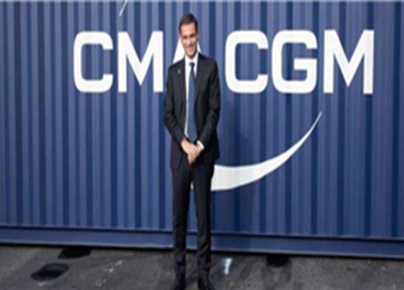CMA CGM SA CEO Warns Industry for Turbulence in Shipping Industry
2023-11-24

Rodolphe Saade, the CEO of CMA-CGM, the world's third-largest container line, has cautioned that the shipping industry is set to face turbulence due to new vessels ordered during the shipping boom of the pandemic, entering service in 2024.
Addressing concerns at an event in Paris to celebrate the establishment of a non-profit AI research lab supported by his family-controlled company based in Marseille, Saade highlighted the challenge in the sector due to the influx of container ships in the coming year, potentially creating an imbalance between supply and demand.
Recent months have seen a significant downturn in the shipping sector, with major container lines such as AP Moller-Maersk A/S, Hapag-Lloyd, CMA CGM and others reporting substantial declines in third-quarter earnings and outlining cost-cutting measures. Some anticipate the decline persisting through 2024.
Saade expressed expectations of modest trade growth between 2% and 3% in the next year. Despite the challenging outlook, he assured that CMA CGM is financially solid, possessing significant market share in the countries where it operates, which will help it navigate the difficulties ahead.
Acknowledging the cyclical nature of the shipping industry, Saade noted that after the exceptional results in 2021 and 2022, the industry is transitioning to more normal times, and CMA CGM is well-equipped for this phase.
While the pandemic-induced boom and subsequent slump have led to industry realignments, including the dissolution of a vessel-sharing partnership between Maersk and Mediterranean Shipping Co., Saade expressed contentment with CMA CGM's membership in the Ocean Alliance, citing satisfaction with its partnership with China's Cosco Shipping Holdings Co.
CMA CGM has utilised its pandemic windfall to invest and expand, making strategic acquisitions in ports, logistics, and air transport. It includes a record deal to acquire Bollore SE's logistics arm for Euro 5 billion ($5.4 billion).









